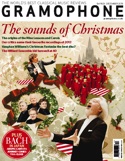Texte paru dans: / Appeared in:
*

GRAMOPHONE (12 /2013)
Pour s'abonner /
Subscription information
Accent
ACC24279

4015023242791 (ID347)
Consultez toutes les évaluations recensées pour ce cd
~~~~ Reach all the evaluations located for this CD
Reviewer: Jonathan
Freeman-Attwood
Orchestral Suites complement La Petite Bande’s cantata cycle There are few musicians who appear more steeped in their worlds than Sigiswald Kuijken and one senses that Bach’s pure instrumental vein frees his spirit like none other. For while his concurrent cantata series promotes a particular rhetorical posture, sometimes over-driven by dogmatic signposts, these performances of the four surviving suites not only sound supremely natural but register among the most stylish and subtle to emerge in years.
Forming the basis of many a self-respecting early music group, the Suites tend to encourage a degree of muscle-flexing in gestural grandeur and corporate homogeneity. La Petite Bande have the latter virtue in abundance but take opulence in their stride and add a kaleidoscopic range of intimacies, inferences and gestural landscapes which are both thrilling and delectable.
By presenting in the order 1, 3, 2, 4, the two D major works are successfully broken up while retaining the unequivocally elegant C major Suite as the scene-setting ‘pastorale’; the strings and winds traverse the music with a geniality and irresistible sangfroid. If less is not always more in Kuijken’s cantata performances, the taut 15-odd musicians present the trumpet-and-drum works with just the right mix of élan and spit and sawdust (old trumpets with no holes provide many extra overtones and gamey tunings). Some might find the Air a touch sour but this is less about intonation than Kuijken (whom one assumes is playing the solo) exhibiting the maverick, never too far below the surface.
Yet it is Kuijken’s uncomplicated delight in Bach’s arresting view of this Teutonically adopted French art form that wins the day. The flute suite (No 2) is like a delicious puff pastry in the lithe hands of Barthold Kuijken, restrained and flirting with French inégales in the Rondeau – those suggestive swung figures which one assumes were still currency in signed-up Gallic-inspired German courts such as Celle. As in all the performances, the violone provides a distinctively resonating bass without doubling the octave, and thereby establishes a unique registral clarity.
Compared to Kuijken’s relatively
unwieldy version from 1982, a mesmerising purpose, natural balance and
transparency of sound bring these works alive with quite remarkable results.
Cliquez l'un ou l'autre
bouton pour découvrir bien d'autres critiques de CD
Click either button for many other reviews


